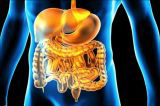séminaire du pôle évolution du vivant – vendredi 5 février 2016
 Host-symbiont interactions in the development of organisms across phyla: ecosystemic individuality and the unifying role of the immune system
Host-symbiont interactions in the development of organisms across phyla: ecosystemic individuality and the unifying role of the immune system
Thomas Pradeu (ALYSAI, UMR 5164, CNRS & université de Bordeaux)
Vendredi 5 février 2016 à 11 heures, amphithéâtre Monge
Abstract
The scientific understanding of development currently undergoes an important conceptual, experimental, and technological revolution. In the last fifteen years, new data, often based on recent technological tools, made it clear that the normal development of organisms is massively dependent on host-symbiont interactions. In organisms as diverse as plants, sponges, cnidarians, arthropods, or mammals, the construction of an organism, indeed sometimes the very first steps of this construction, necessitates the presence and action of bacterial or viral symbionts. Developmental symbioses, long thought to be rather rare, now appear to be ubiquitous in nature (Gilbert and Epel 2015; Nyholm and McFall-Ngai 2014). This has led some biologists to say that organisms are “holobionts” (that is, host-symbiont units), and are built “holobiontically,” in the sense that symbionts are necessary for the normal construction of an organism.
In this talk, I will try to characterize this scientific revolution, and I will emphasize its deep conceptual consequences for our understanding of biological individuality. I will make four main claims:
– Taking developmental symbioses into account impacts significantly our understanding of development;
– Taking developmental symbioses into account impacts significantly our understanding of biological individuality;
– Even though organisms are ecosystems, they are very particular ecosystems as they exhibit an extremely strong degree of unity;
– Across phyla, the immune system plays a decisive role in the unification of the heterogeneous constituents of the organism.
I will conclude by defending a “multidisciplinary“ approach to biological individuality, based on the joint lessons of evolution, development, ecology, microbiology, and immunology.
References
Pradeu T., Jaeger S., Vivier E. (2013,) The Speed of Change: Towards a Discontinuity Theory of Immunity? Nature Reviews Immunology 13, 764–769
Pradeu T. (2010), What is an organism? An immunological answer. History and Philosophy of the Life Sciences 32: 247-268
- titre:
- Host-symbiont interactions in the development of organisms across phyla: ecosystemic individuality and the unifying role of the immune system
- intervenant:
- Thomas Pradeu
- date:
- vendredi 5 février 2016
- kc_data:
- a:8:{i:0;s:0:"";s:4:"mode";s:0:"";s:3:"css";s:0:"";s:9:"max_width";s:0:"";s:7:"classes";s:0:"";s:9:"thumbnail";s:0:"";s:9:"collapsed";s:0:"";s:9:"optimized";s:0:"";}
- kc_raw_content:
 Host-symbiont interactions in the development of organisms across phyla: ecosystemic individuality and the unifying role of the immune system
Host-symbiont interactions in the development of organisms across phyla: ecosystemic individuality and the unifying role of the immune systemThomas Pradeu (ALYSAI, UMR 5164, CNRS & université de Bordeaux)
Vendredi 5 février 2016 à 11 heures, amphithéâtre Monge
Abstract
The scientific understanding of development currently undergoes an important conceptual, experimental, and technological revolution. In the last fifteen years, new data, often based on recent technological tools, made it clear that the normal development of organisms is massively dependent on host-symbiont interactions. In organisms as diverse as plants, sponges, cnidarians, arthropods, or mammals, the construction of an organism, indeed sometimes the very first steps of this construction, necessitates the presence and action of bacterial or viral symbionts. Developmental symbioses, long thought to be rather rare, now appear to be ubiquitous in nature (Gilbert and Epel 2015; Nyholm and McFall-Ngai 2014). This has led some biologists to say that organisms are “holobionts” (that is, host-symbiont units), and are built “holobiontically,” in the sense that symbionts are necessary for the normal construction of an organism.
In this talk, I will try to characterize this scientific revolution, and I will emphasize its deep conceptual consequences for our understanding of biological individuality. I will make four main claims:
- Taking developmental symbioses into account impacts significantly our understanding of development;
- Taking developmental symbioses into account impacts significantly our understanding of biological individuality;
- Even though organisms are ecosystems, they are very particular ecosystems as they exhibit an extremely strong degree of unity;
- Across phyla, the immune system plays a decisive role in the unification of the heterogeneous constituents of the organism.I will conclude by defending a “multidisciplinary“ approach to biological individuality, based on the joint lessons of evolution, development, ecology, microbiology, and immunology.
References
Pradeu T., Jaeger S., Vivier E. (2013,) The Speed of Change: Towards a Discontinuity Theory of Immunity? Nature Reviews Immunology 13, 764–769
Pradeu T. (2010), What is an organism? An immunological answer. History and Philosophy of the Life Sciences 32: 247-268
- extrait:
- lien_externe:
